Dr Maria de Lourdes Aguiar Oliveira is a biologist and the Vice-President of Global Health and International Relations (VPSGRIs) at the Oswaldo Cruz Foundation (Fiocruz), Brazil’s leading public health research institution. With a PhD in Cellular and Molecular Biology from Fiocruz and a Master's degree partly developed at the Robert Koch Institute in Germany, she has worked at Fiocruz for over 40 years. She also coordinates the WHO Collaborative Open Consortium for Flaviviruses.
In her former role, she set research priorities, managed biological collections and promoted innovation. After assuming the vice-presidency of Research and Biological Collections, she had expanded Fiocruz’s international cooperation and led efforts to strengthen pandemic prevention, preparedness and response – one of the main missions of the recently instituted VPSGRIs.
We spoke to Dr. Oliveira about the partnership between Fiocruz and the WHO Hub for Pandemic and Epidemic Intelligence.
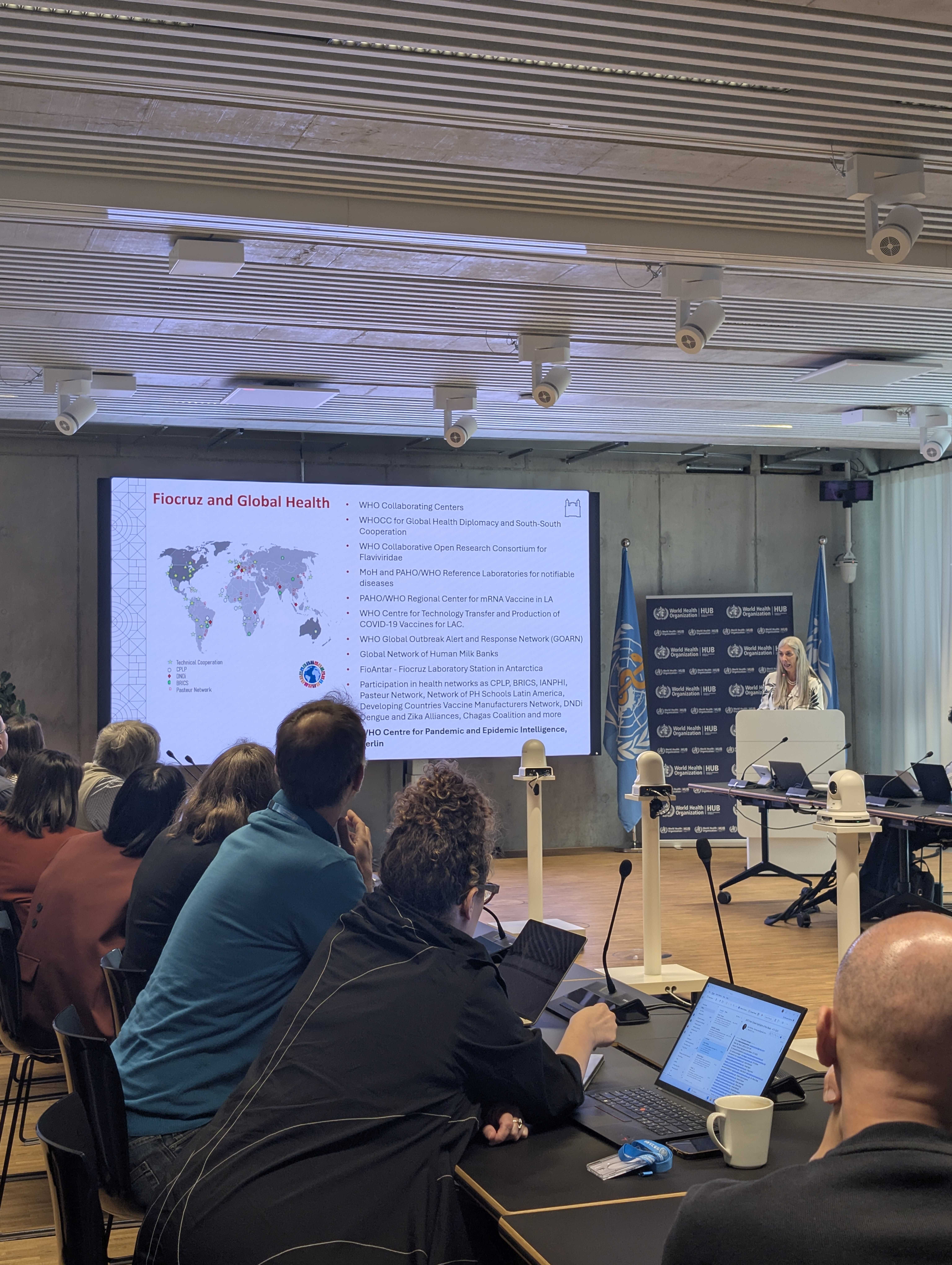
Brownbag Presentation by Dr. Oliveira to German Research institutions, 6th May 2025
Credit: © WHO / Zoila B. Leiva Rioja
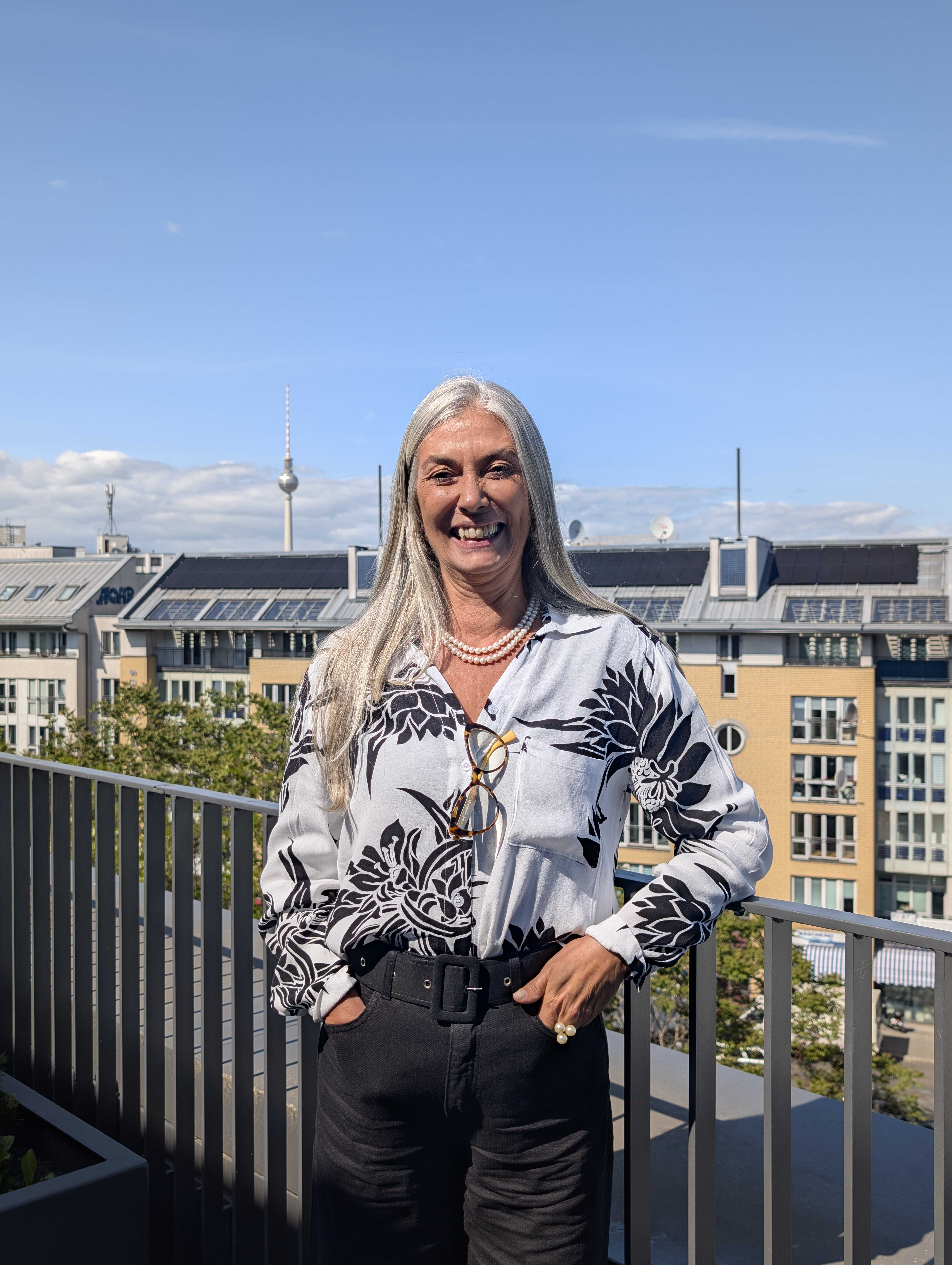
Dr. Oliveira visiting the WHO Hub in Berlin, 6th May 2025
Credit: © WHO / Zoila B. Leiva Rioja
What is the strategic importance of this partnership for your institution and how is it aligned with your mission?
Since May 2023, Fiocruz and the WHO Hub in Berlin have worked together under a Memorandum of Understanding, as we recognized our shared goal of reducing health inequities through science and global collaboration.
The collaboration offered Fiocruz a fresh perspective to see surveillance as part of an integrated epidemiological intelligence system. It allows us to connect our cutting-edge research, technology and surveillance efforts to global health. It was the perfect opportunity to combine Fiocruz’s longstanding expertise with the WHO Hub’s innovative and collaborative model.
What are the main objectives of this interinstitutional partnership? What have been the most meaningful milestones so far?
The partnership is based on two key pillars: data-based surveillance and pathogen genomic surveillance. Fiocruz has experience in both areas, and the cooperation with the WHO Hub provides an opportunity to share knowledge, platforms and tools to advance and accelerate the global response to pandemics and epidemics.
On the first front, we have been working together to advance the Collaboratory Community of Practice on Dengue and Other Arbovirus Analytics, a multi-disciplinary, cross-sectional community that facilitates discussions around dengue and arbovirus epidemiology and modelling for informing data-driven public health responses and policy decisions. We’re also supporting the development of a dengue transmission model for the Pandemic Simulator, a data-driven decision-support platform initiated by the WHO.
Areas of work prioritized under pathogen genomic surveillance are the co-development of guidance for a robust infrastructure for data generation and management, a playbook for benchmarking of analytical tools, bioinformatics EQA protocol for laboratories and guidance on molecular biology approaches to “Pathogen X”.
We aim to take research and innovations we developed during COVID-19, and with the Hub’s support, adapt them for broader use. The collaboration brings together different partners and areas of expertise to leverage the best results while avoiding duplication of efforts.
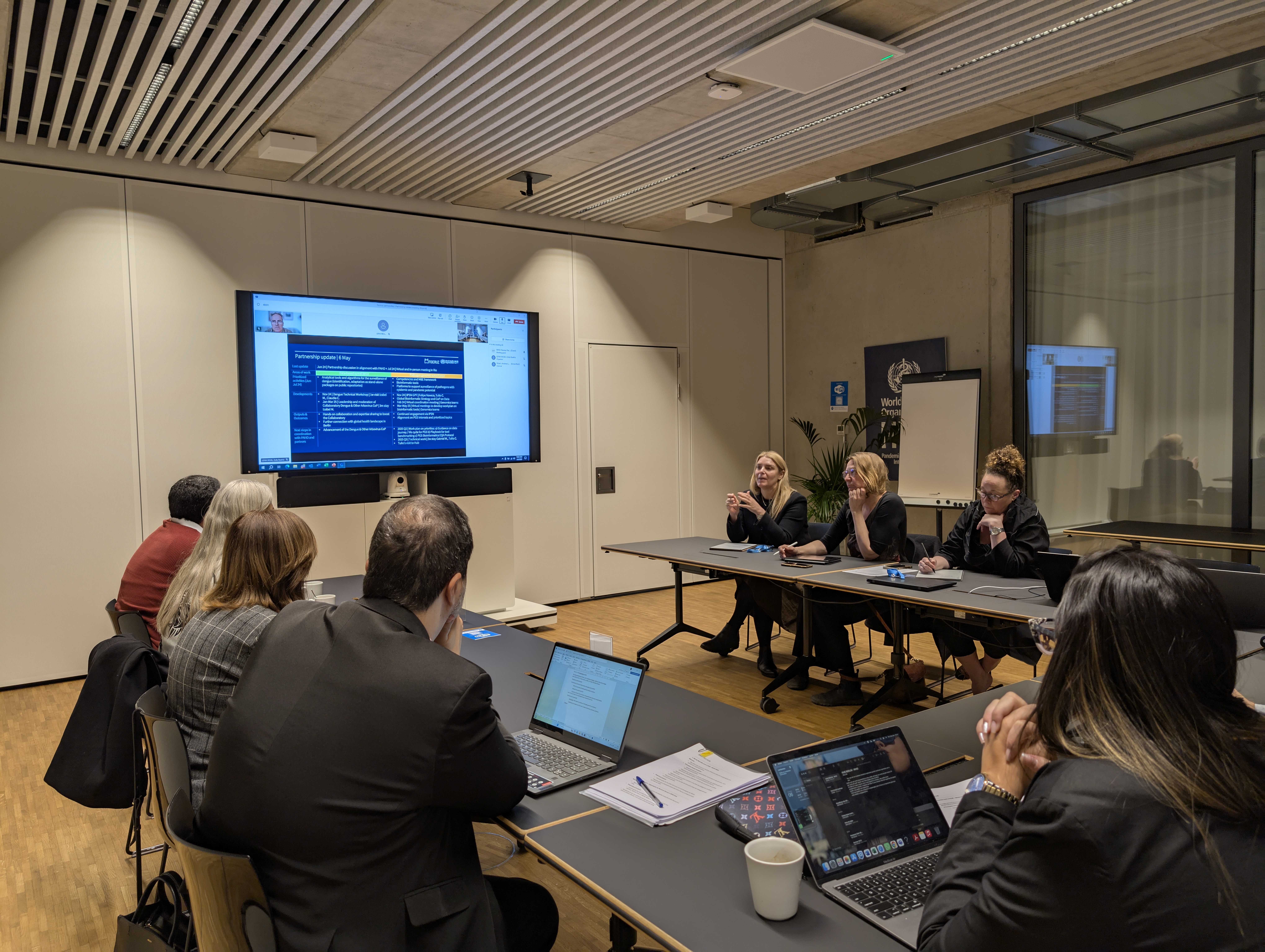
Hybrid Partnership Meeting between WHO Hub, PAHO and Fiocruz in Berlin, 6th of May 2025
Credit: © WHO / Zoila B. Leiva Rioja
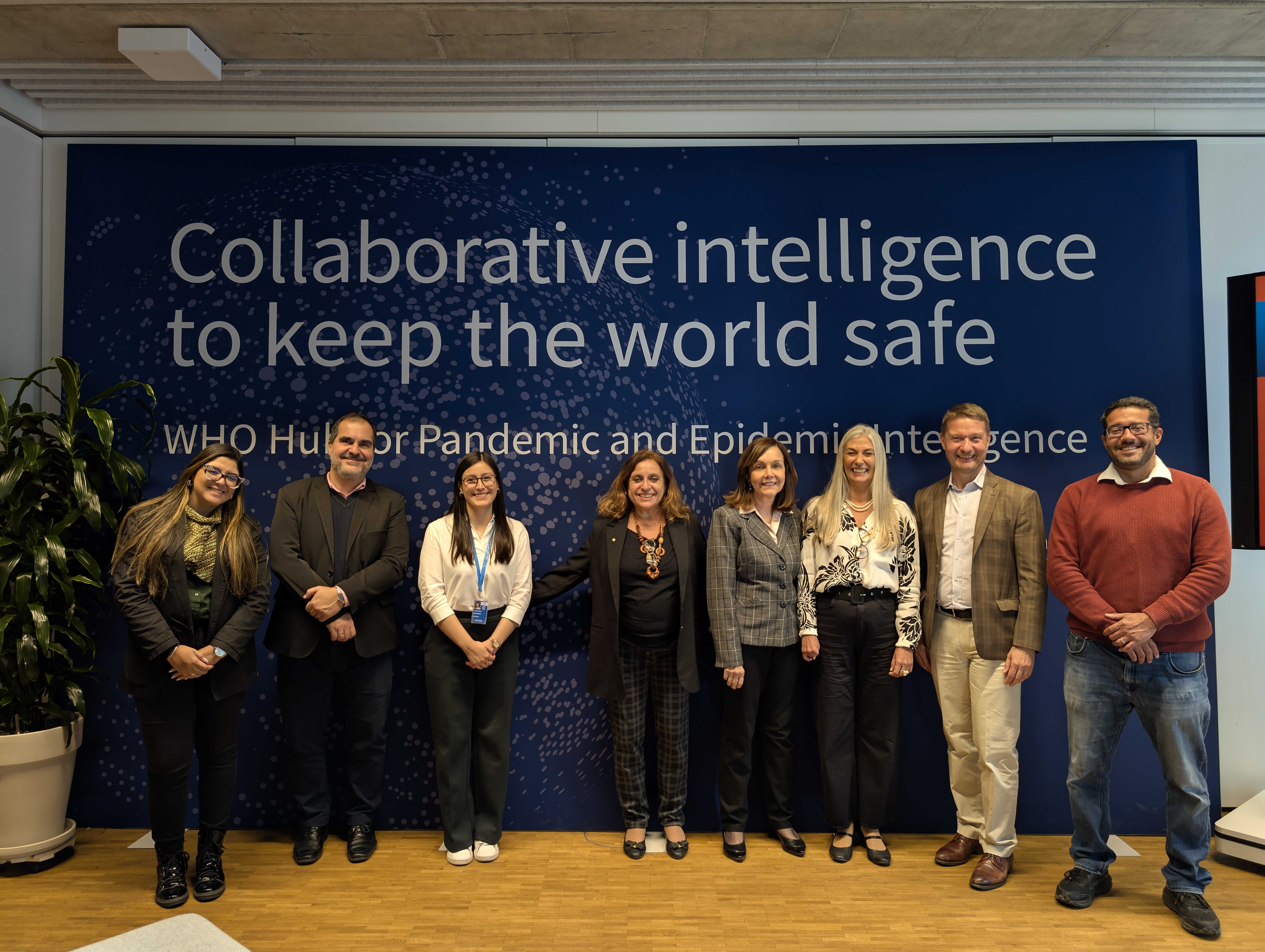
Fiocruz delegation at the WHO Hub for Pandemic and Epidemic Intelligence
Credit: © WHO / Zoila B. Leiva Rioja
Looking ahead, how do you see the partnership evolve? What opportunities do you see for the next phase?
This partnership has already enabled rich exchanges between experts in their respective fields, and I see great potential in further joining capacities, especially by engaging more closely with other reference groups and R&D teams.
In the next phase, I envision us leveraging our collective strengths in surveillance, database development, and genomic networks to build better tools that enhance both the quality and reach of public health responses, even in the face of social, economic, or environmental constraints.
I see this as the true frontier of public health, and the partnership with the WHO Hub is a way to leverage joint expertise to improve global health and address existing challenges.
The primary challenge is combining the necessarily different and useful surveillance strategies into a single, cohesive surveillance framework. This would mean the consolidation of different surveillance strategies, such as wastewater, epidemiological, syndromic, clinical and genomic. There is a need to set up an improved framework to tackle re-emergent pathogens that have the potential to cause epidemics and pandemics.
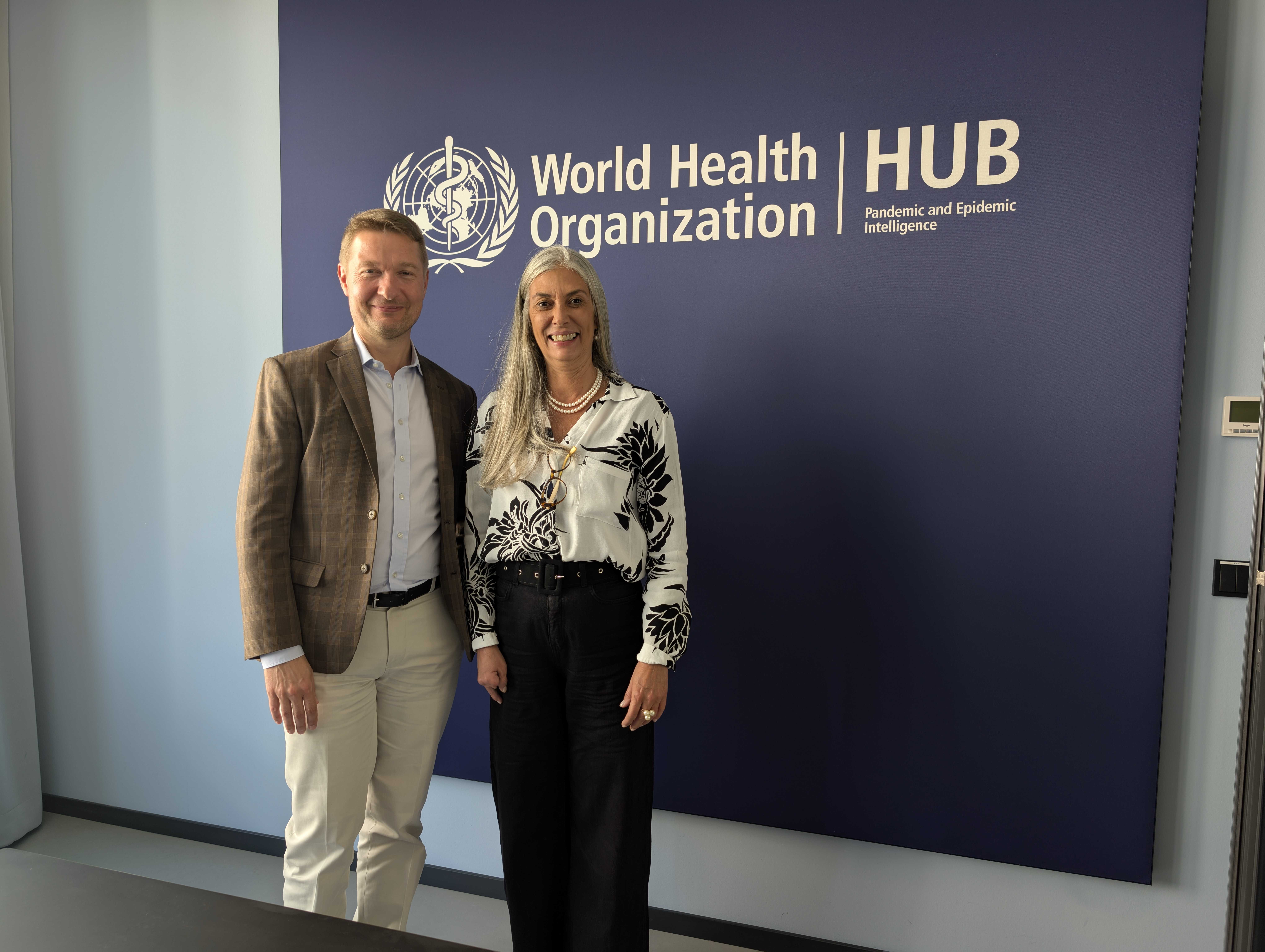
Dr. Oliveira and Dr. Oliver Morgan, Head of the WHO Hub for Pandemic and Epidemic Intelligence in Berlin
Credit: © WHO / Zoila B. Leiva Rioja
